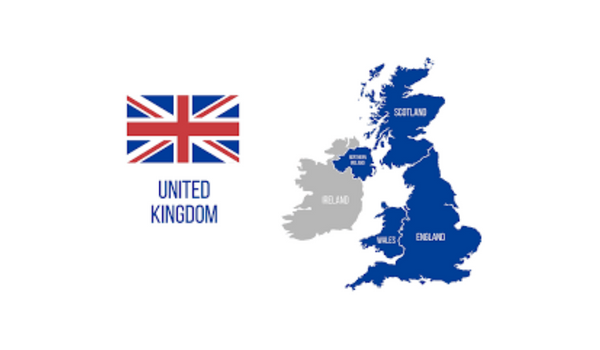International News
South Korean Court To Decide Fate Of Detained President Yoon Suk Yeol

A South Korean court will decide on Saturday whether to extend the detention of impeached President Yoon Suk Yeol, who was arrested earlier this week over an alleged attempt to impose martial law.
Yoon, detained in a pre-dawn raid on Wednesday, is accused of trying to suspend civilian rule on December 3, citing threats from “anti-state elements.”
His attempt to deploy soldiers to storm parliament failed, as lawmakers rejected the martial law declaration just six hours after his surprise announcement.
RELATED NEWS: Political Turmoil In South Korea As President Yoon’s Impeachment Trial Begins
The fallout was swift: Yoon became the first sitting South Korean president to face impeachment and arrest.
Investigators accuse him of insurrection, a charge that could result in life imprisonment or even execution if proven.
The Seoul Western District Court will review a request to extend Yoon’s detention by 20 days during a 2:00 p.m. (0500 GMT) hearing on Saturday.
If approved, the extension would allow prosecutors additional time to prepare a formal indictment.
Yoon’s lawyer, Yoon Kab-keun, said the embattled president plans to attend the hearing “with the intention of restoring his honour.”
The court has closed public access to its premises, citing safety concerns as Yoon’s supporters gathered outside.
Waving South Korean and American flags, they have called for the dismissal of the detention extension request.
The Corruption Investigation Office (CIO) is leading the probe into Yoon’s failed martial law bid. The president reportedly resisted arrest for weeks, staying holed up in his guarded residence until Wednesday’s raid.
In a statement following his detention, Yoon said he surrendered “to avoid bloodshed” but questioned the legality of the investigation.
READ ALSO: Power Outage Hits Presidential Villa, Maitama, Others As Vandals Strike
His legal team claims he has already provided his position and has refused to answer further questions.
Yoon’s impeachment is under separate review by the Constitutional Court, which could permanently remove him from office and trigger fresh elections within 60 days.
The president has missed the first two hearings, but the trial will proceed in his absence.
Meanwhile, the opposition Democratic Party, which holds a majority in parliament, has intensified its push against Yoon.
The party hailed his arrest as “the first step” toward restoring constitutional order. Late Friday, lawmakers passed a bill to launch a special counsel investigation into the failed martial law plan.
The crisis has left South Korea in political uncertainty. Despite winning the presidency in 2022, Yoon has faced mounting opposition, with his impeachment exposing sharp divisions in the country’s leadership.
International News
China’s Population Shrinks For Third Year Amid Aging Crisis, Low Birth Rate
China’s population shrank for the third consecutive year in 2024, as the nation grapples with a rapidly aging society, persistently low birth rates, and mounting economic pressures.
The country’s National Bureau of Statistics reported a population of 1.408 billion by the end of the year, down from 1.410 billion in 2023.
The population decrease reflects a broader demographic shift following decades of robust growth.
Once the world’s most populous nations, China was overtaken by India in 2023.
READ MORE: Celebrating 20 Years of Excellence: SYNLAB Nigeria’s Journey in Diagnostics Care
Despite government efforts to boost birth rates through subsidies, pro-fertility campaigns, and policy adjustments, the decline persists.
Data shows that the number of people aged 60 and older rose to 310.31 million in 2024, representing nearly a quarter of the population.
This marks a significant increase from 297 million in 2023. Experts project that by 2035, seniors will comprise nearly one-third of China’s population.
“The aging crisis poses unprecedented challenges for China’s pension and public health systems,” said Zhao Litao, a senior research fellow at the National University of Singapore’s East Asian Institute.
China’s birth rate saw a slight increase in 2024, rising to 6.77 per 1,000 people, up from 6.52 in 2023.
Experts attribute this to deferred childbirth during the COVID-19 pandemic and a rise in marriages in 2023 and 2024, particularly during the auspicious Year of the Dragon.
However, demographers remain skeptical about the sustainability of this uptick. “The number of women of childbearing age is set to decline sharply in the coming decades,” said independent demographer He Yafu. “Unless significant pro-birth policies are introduced, the downward population trend will persist.”
China ended its strict one-child policy in 2016 and later allowed families to have up to three children in 2021.
Despite these changes, economic factors, such as the rising cost of living and housing, have deterred many from expanding their families.
Additionally, the growing number of women pursuing higher education and careers has contributed to falling birth rates.
“Chinese women still face entrenched labor market gender discrimination, which discourages childbirth,” said Yun Zhou, a sociologist at the University of Michigan.
China’s demographic challenges are compounded by slowing economic growth and increasing pressure on social systems.
In response, the government raised the statutory retirement age from January 1, 2024, to address labor shortages and ease the burden on pension systems.
The retirement age reform marks the first adjustment in decades, reflecting China’s transition from a period of scarcity to one of comparative wealth and improved living conditions.
Despite incremental efforts, experts predict that China’s demographic crisis will persist. “The trends of declining births, population contraction, and rapid aging remain unchanged,” Zhao Litao noted.
International News
UK Defers To Trump On Chagos Island’s Sovereignty

The United Kingdom (UK) would not be finalising the deal to transfer control of the Chagos Islands to Mauritius until the United States of America’s (USA) President-elect, Donald Trump is inaugurated and consulted.
This delay, according to ITVx, stems from concerns within Trump’s inner circle, particularly regarding the strategic Diego Garcia military base, which is used by both the U.S. and the UK.
The UK government emphasised on Wednesday that it will only agree to a deal “that is in the UK’s best interests and protects our national security.”
ALSO READ: Tinubu Invites UAE President To Nigeria
On Mauritius’ request for further discussions, the prime minister’s spokesman, Matthew Doyle, added, “It is obviously now right that the new U.S. administration has the chance to consider this and discuss this once they are in office.”
On her part, Mauritius has confirmed that further negotiations will take place, with Attorney General Gavin Glover returning to London for more talks.
It was gathered that the UK has made a decision to cede sovereignty over the British Indian Ocean Territory to Mauritius, while leasing the Diego Garcia base back to the U.S. for an estimated £90 million annually.
Mauritian Prime Minister, Navin Ramgoolam did not sign off on the previous deal and is sending a delegation back to London for additional negotiations.
Pressed on if this meant the UK would not finalise the deal before Trump’s inauguration on January 20, the spokesman reiterated, “You can take from what I have just said about that, the new U.S. administration.”
While Sir Keir Starmer defended the plan in Parliament, asserting that it “delivers the continued effective operation of the base,”
On her part, conservative leader Kemi Badenoch, has frowned at the negotiations, describing it a “secret deal to surrender British territory.”
The Mauritian government remains steadfast in its pursuit of the islands, with a statement confirming that the Cabinet has been briefed on developments following last week’s talks in London.
“The commitment and resolve of Mauritius to reach an agreement and end this long battle for sovereignty remains unshaken,” the statement read.
There indications that the Chagos Islands, part of the British Indian Ocean Territory, remain highly contentious, attracting diverse interests from different ccountries.
The forced removal of the indigenous Chagossian people in the 1960s and 1970s to accommodate the U.S. military base has sparked ongoing legal and human rights battles.
The International Court of Justice ruled in favour of Mauritius, though the UK has yet to implement the ruling.
International News
Political Turmoil In South Korea As President Yoon’s Impeachment Trial Begins
South Korea’s Constitutional Court opened the impeachment trial of President Yoon Suk Yeol on Tuesday, marking a pivotal moment in the nation’s political history following his controversial attempt to impose martial law.
The court’s first hearing was brief, adjourning shortly after it began at 2:00 pm (0500 GMT) due to Yoon’s absence.
A spokesperson confirmed the adjournment, stating the hearing lasted only minutes.
Yoon’s legal team cited “safety concerns” for his nonattendance, but the court plans to proceed with the remaining hearings as scheduled.
READ MORE: AGN President Responds To Reports Of Arrest In Umuahia
Yoon’s impeachment follows his December 3 directive for soldiers to storm parliament in an effort to block lawmakers from voting on his suspension of civilian rule.
The failed bid to impose martial law, South Korea’s first in over four decades, lasted just six hours and plunged the nation into its worst political crisis in decades.
The president was swiftly impeached and suspended from office. Since then, Yoon has remained at his residence, refusing summonses from investigators and relying on his presidential security team to resist arrest.
The Constitutional Court’s eight judges will assess whether Yoon’s declaration of martial law was unconstitutional or illegal—either of which would justify his removal.
A decision to uphold the impeachment requires six votes in favor.
The trial, which comprises five scheduled hearings, will continue Thursday, with additional sessions planned for January 21, January 23, and February 4. The court has until mid-June to deliver its ruling.
“This impeachment case focuses solely on the martial law situation,” said Kim Nam-ju, one of Yoon’s lawyers. “Since most of the individuals involved have already been indicted and the facts have been somewhat established, it doesn’t seem like it will take a long time.”
The National Assembly’s legal team has argued for swift action. “There are overwhelming reasons for the immediate dismissal of Yoon,” a representative said before the trial began Tuesday.
While the impeachment trial proceeds, a parallel criminal investigation into Yoon’s actions continues.
A joint team of investigators from the Corruption Investigation Office (CIO) and police is preparing another attempt to arrest the suspended president on insurrection charges.
A previous effort to detain Yoon was blocked by his security team, who have since fortified his residence with barbed wire, barricades, and increased patrols.
The defence ministry has clarified that nearby military units will not assist in any arrest attempts.
Yoon’s chief of staff, Chung Jin-suk, indicated a willingness to cooperate under specific conditions. “We are ready to consider all options for investigation or visits to the sitting leader at a third location,” he said.
If arrested, Yoon would become the first sitting South Korean president to face detention. A conviction on insurrection charges could result in life imprisonment or even the death penalty.
The impeachment trial comes as South Korea grapples with heightened political instability. Lawmakers also impeached Yoon’s stand-in last month, leaving the country’s leadership in disarray.
The acting president has called for dialogue and urged all parties to resolve the crisis peacefully.
















